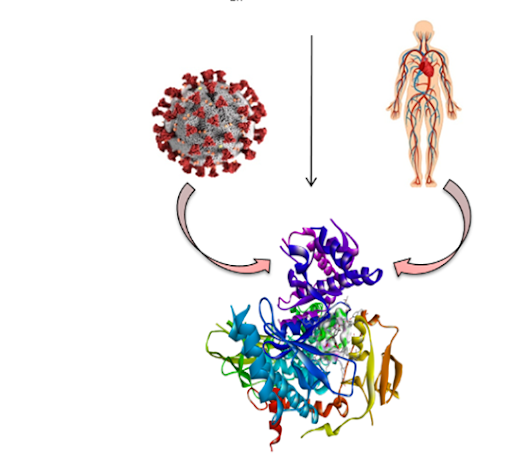IN SILICO APPROACHES OF (E)-PHYTOL TO INHIBIT THE ACTIVITY OF PREVENTING SARS-COV-2 AND COLORECTAL CANCER
Abul Bashar Ripon
Khalipha 1.2*, Khadiza Akter1, Samia Zaman Tanny3
2Evergreen Scientific Research Centre, Gopalganj-8100, Bangladesh
3PhD Fellow, Department of Pharmacy, Jahangirnagar University, Savar Dhaka.
*Corresponding
Author: Abul Bashar Ripon Khalipha
E-mail:
khalipha1982@gmail.com
ABSTRACT
The plant-derived flavonoid,
(E)-phytol has many important biological activities, including anti-cancer
activity. This study aims to perform an in-silico study on (E)-phytol against several
structural and non-structural and Colorectal Cancer and host proteins.
Molecular docking studies were carried out using compounds against viral S
protein, ERK1/2, JNK, and p38 MAPK. apoptosis (e.g., BAX, BCL2, CASP3) and cell
cycle regulation (e.g., CCND1, CDK4). caspases (e.g., Caspase-3, Caspase-9),
Bcl-2 family proteins (e.g., Bcl-2, Bax), and death receptors (e.g., Fas,
TNF-R1). ERK1/2, P38 MAPK, BAX, BCL2, CASP3, TNF-R1 proteins. (E)-phytol showed
strong interactions with the CASP3, BAX, nsp15, calcineurin–NFAT and IKK
proteins. It also showed the interactions with the other tested proteins. In
all cases, (E)-phytol showed better binding affinities than the commercially
available anti-viral drugs that are currently underused in SARS-COV-2 and
Colorectal Cancer. (E)-phytol may be one of the potential targets to fight
against cancer including colorectal Cancer. Further, in vivo studies should be
required to support the findings of this study.
 |
| Anti-viral activity of (E)-phytol |









0 Comments